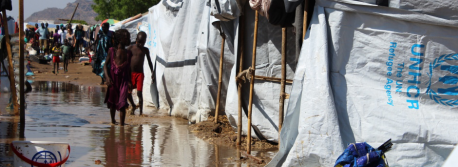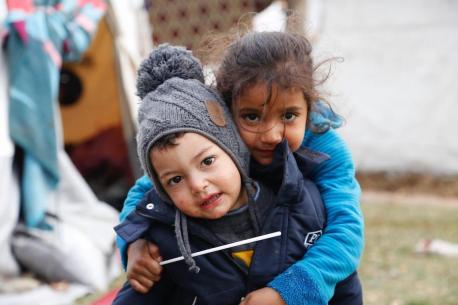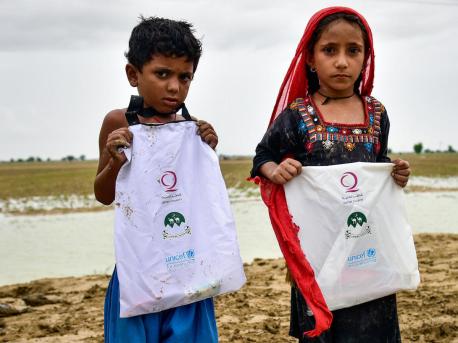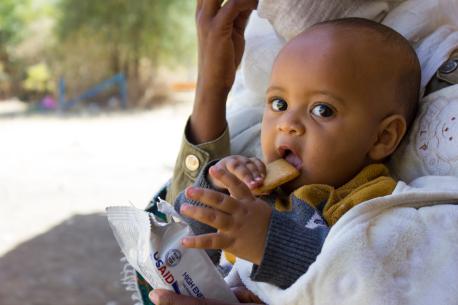
As the Rainy Season Approaches, A Rush of Aid to South Sudan
Christopher Tidey is a UNICEF Communication Specialist on mission to South Sudan. He writes from the capital, Juba, where 27,000 people have taken refuge from months of violence.
“I was sitting with my five brothers and sisters in the tent, playing a game, and then … boom, the rains came down so hard it was like the sky was angry with the people below,” says 20-year-old Thot living in a camp in Juba. “The floor quickly filled with water and all of our clothes, food, supplies, everything was soaked. The little ones were scared, but what could we do? We just sat there, wet, until the rain passed.”
There are now more than 705,000 people, including 377,000 children, who have been internally displaced by violent conflict in South Sudan since the political crisis erupted on December 15 last year. Many of these people have taken refuge on low-lying land which is prone to flooding during the April to October rainy season.
“The rains came down so hard it was like the sky was angry with the people below”
On my visit to Juba, I could see the impact of the storm. The devastation wrought by just two hours of rain was shocking.
The ground of the Protection of Civilians site at the UN peacekeeping base in Tomping, Juba, had been transformed into a muddy soup of debris, everyone having to tread carefully so as not to slip and fall in the muck.
“We cannot stay here anymore so we have taken everything we have left and gone to sit by the camp’s main road,” explains Thot. “We have nowhere else to go, nowhere to sleep.” UNICEF is on the frontline working to help vulnerable children and families.
UNICEF and its partners are preparing emergency supplies like ready-to-use therapeutic food for the treatment of malnutrition, launching cholera and measles vaccination campaigns and setting up response programs in hard-to-reach places.


